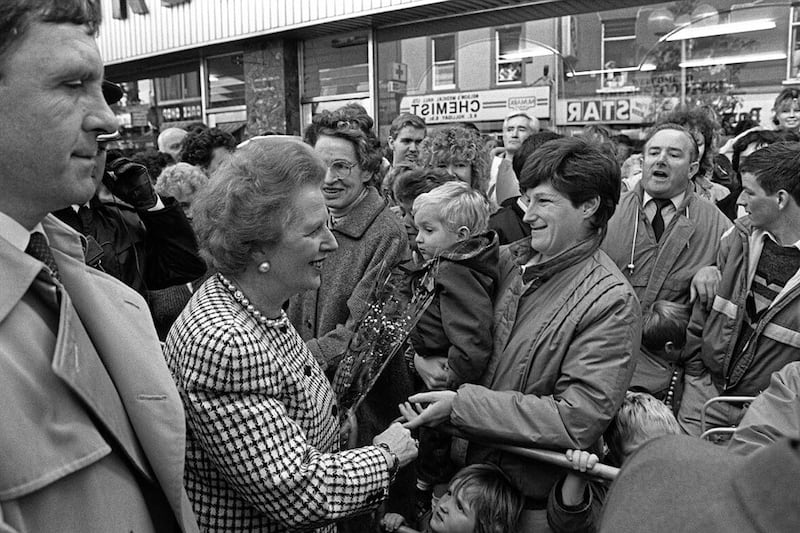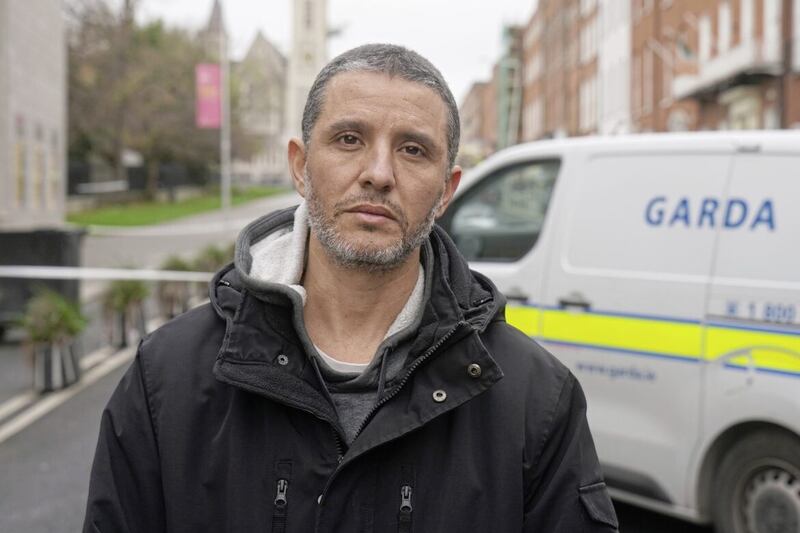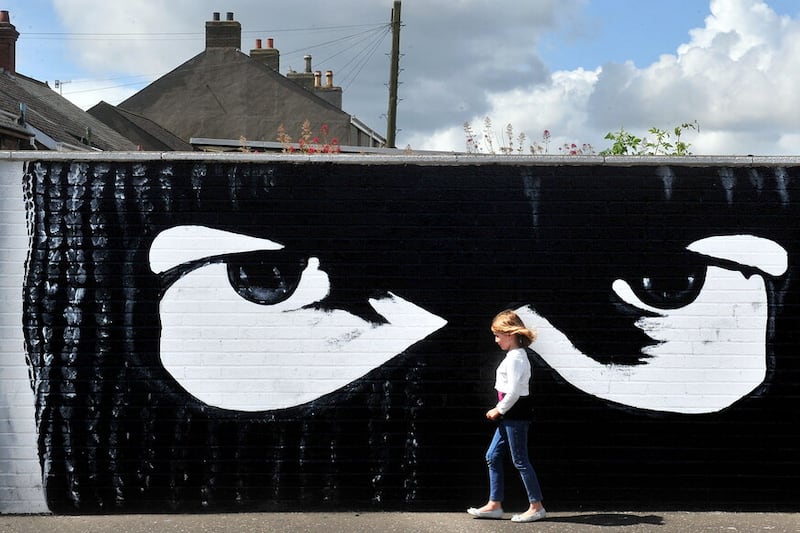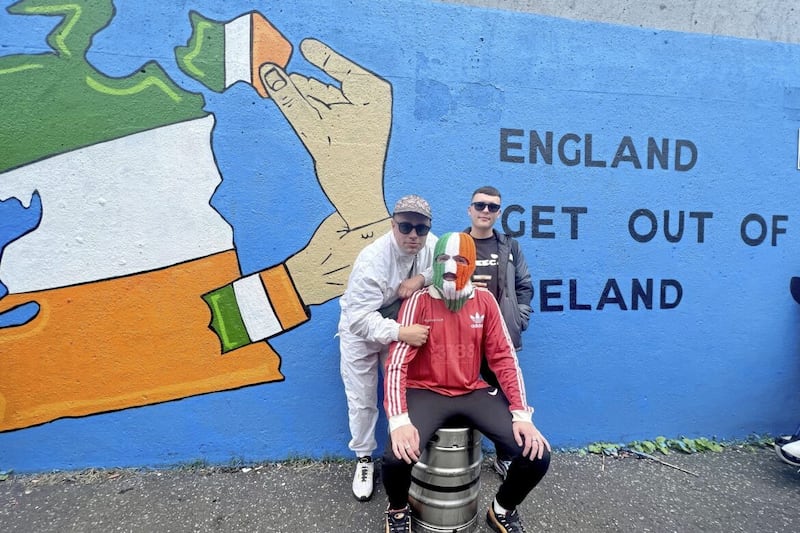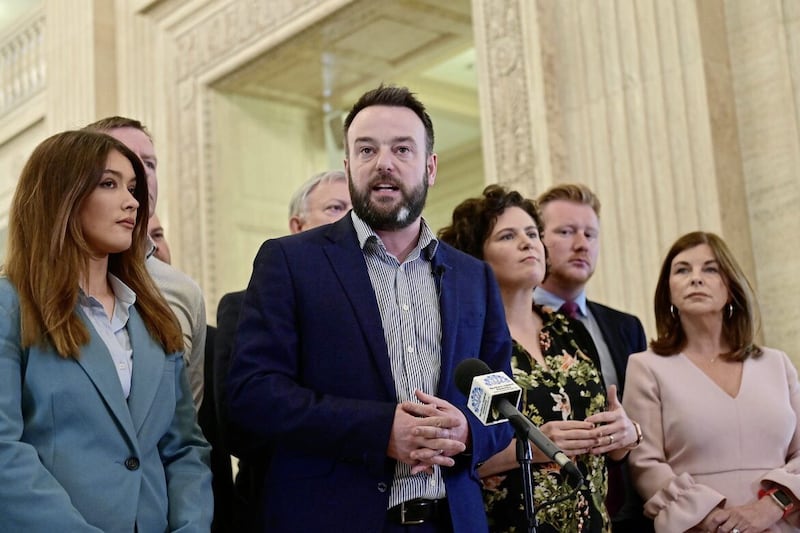A media friend told me about one of his greatest nightmares during a live outside broadcast.
The link-up to the streets of Newry was from a studio in Belfast and the intrepid interviewer was asked to do a vox pop on the revamped streetscapes and an upgrade of the local market.
He came across three very well known local characters.
When each was asked in turn about the new public realm, the first replied: “It’s long overdue, for Newry gets naithin”. The second was slightly more positive, saying: “It will give the place a lift.” But the third was forthright. When asked what he thought about the upgrades to the local market, he curtly replied on live radio: “What, the market? Newry market? Sure everyone knows the market is f****d!”
A shocked Belfast producer immediately pulled the plug.
Read more:
Deirdre Heenan: Time for DUP to start listening
Brian Feeney: United Ireland needed to end north's permanent state of crisis
Mary Kelly: We're in zombies-land and it's in your head, Jim
When thinking of this yarn, I am reminded it could be equally be a metaphor for this basket case of place known as Northern Ireland.
Despite the Conservative government rhetoric and blethering about being champions for the union, most British politicians (and their voters) don’t give a fiddler's about the north. Southern Irish voters don’t rate the north as a priority but at least there’s an emotional pull.
British voters are relieved their off spring in military service no longer have to serve on the streets of Northern Ireland but in truth, if they were faced with a binary question on the future of Northern Ireland, many would simply opt for pulling the plug.
Northern Ireland has become the embarrassing relative which every family has, whereby courtesy demands they are invited to family events but with the hope they can’t make it.
Certainly if the Falklands had the community tensions and baggage of Northern Ireland, it’s unlikely the British government would have raced warships to protect it. They would have gift packaged the Malvinas and given it away with bows and ribbons. Unfortunately Northern Ireland is on the doorstep of Westminster and therefore more difficult to ignore.
The vast majority of those who historically led political unionism (and some who still do) have successfully managed to alienate themselves from mainstream British culture, such as it is.
The notion that Northern Ireland-style unionism could in anyway successively field candidates in British elections is as fanciful as it is farcical. The political asylum over there is already full with the likes of the Reform Party, Britain First and the BNP. Orange culture would seem like some novelty Blackpool turn.
In the north, across the political divide, the general electorate share a belief that they get little to-nothing from having an actual government. One would think the public would be marching on Stormont in their hundreds of thousands demanding a return to office but they are not. Such are their exceedingly low expectations from the political classes that people grumble and gurn but don’t rage.
More worryingly, the public are already in on the greatest open secret in the north: they know the political system is banjaxed.
The north was born out of failure. It was run by failures and it will ultimately be doomed to fail too.
That doesn’t mean it should be allowed to fall apart at the seams.
Even those who wish the north to exit the UK are wary as to how the brunt of sustained political failure would land hardest on the already hard-pressed shoulders of the most vulnerable in society.
Those who aspire to a new Ireland can’t simply let the north rot. It may be tempting – even perversely enjoyable – but doing so won’t shorten hospital waiting lists, build schools, attract inward investment or create jobs.
The continued impasse created by one political party isn’t sustainable. Joint authority between Westminster and Dublin is the next step. The framework has been place since both the 1985 Anglo Irish Agreement and the 1998 Good Friday Agreement.
Bizarrely, against this bleak outlook, a political deal is still possible.



